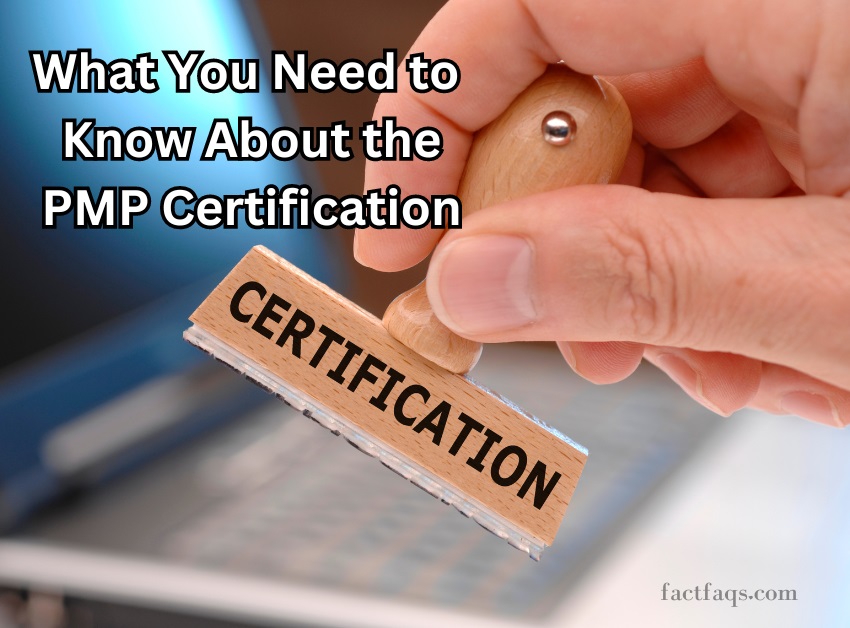Welcome to the world of project management, where planning, organizing, and executing projects take center stage! Whether you’re a seasoned professional looking to advance your career or a newcomer eager to enter this dynamic field, one certification stands tall as the gold standard: the Project Management Professional (PMP) Certification spoto.
In today’s competitive job market, having a PMP certification can significantly boost your chances of landing lucrative project management roles. But what exactly is involved in obtaining this prestigious credential? Don’t worry; we’ve got you covered!
In this blog post, we’ll delve into everything you need to know about the PMP certification, from eligibility requirements and exam preparation strategies to understanding the exam format and scoring system. So, fasten your seatbelts as we embark on an exciting journey toward becoming a certified project management pro! Let’s get started!

Eligibility Requirements for PMP Certification
To become eligible for the PMP certification, you must meet certain criteria set by the Project Management Institute (PMI). First and foremost, you need to have a secondary degree (high school diploma, associate’s degree, or equivalent) with at least five years of project management experience. This includes leading and directing projects in various industries.
Alternatively, if you hold a four-year degree or global equivalent, you can qualify with three years of project management experience. Additionally, aspiring candidates must accumulate a specific number of hours spent on project management education. For those with a secondary degree, this requirement is 35 contact hours.
But wait! There’s more to it than just qualifications and experience. PMI also requires applicants to pass an exam that assesses their knowledge and skills in project management. The exam focuses on areas such as initiating projects, planning for success, executing tasks efficiently, monitoring progress effectively, and closing projects successfully.
Now that we’ve covered the basics of eligibility requirements for the PMP certification, let’s move on to how you can best prepare yourself for this challenging yet rewarding journey! Stay tuned!
How to Prepare for the PMP Exam
So, you’ve decided to pursue the PMP certification and are ready to take on the challenge of preparing for the exam. Congratulations! With proper preparation and a solid study plan in place, you can increase your chances of success.
To start, familiarize yourself with the Project Management Body of Knowledge (PMBOK) guide; it’s the primary resource for the PMP exam. Read through each chapter carefully and make notes on key concepts, tools, and techniques. Understanding these fundamentals will provide a strong foundation for your exam preparation.
Next, consider enrolling in a PMP exam prep course or workshop. These programs offer comprehensive training that covers all aspects of project management as well as strategies specific to passing the exam. They often include practice exams and mock tests that allow you to gauge your readiness.
The PMP Exam Format and Scoring System
The PMP exam format and scoring system play a crucial role in determining whether or not you will earn your certification. Understanding these aspects is essential for effective preparation.
The PMP exam consists of 200 multiple-choice questions, which are based on the Project Management Body of Knowledge (PMBOK) guide. These questions cover various domains such as initiating, planning, executing, monitoring and controlling, and closing projects. It is important to note that not all questions carry equal weight – some may be more challenging than others.
To pass the exam, you need to achieve a minimum score determined by the Project Management Institute (PMI). The exact passing score is not disclosed publicly, but it typically ranges between 60-70%. Therefore, it is advisable to aim for a higher score to ensure success.
It’s worth mentioning that there is no negative marking on the PMP exam. This means that even if you’re unsure about an answer, it’s better to make an educated guess rather than leave it blank. Your final score will be based solely on the correct answers.
Maintaining Your PMP Certification Once you have earned your pmp certification dumps free download, it’s important to understand the requirements for maintaining them. The Project Management Institute (PMI) requires certified professionals to earn 60 Professional Development Units (PDUs) every three years.
PDUs can be obtained through a variety of activities, such as attending project management conferences, participating in webinars or workshops, volunteering in the field, or even writing articles and blogs related to project management.
